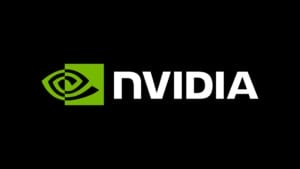Is hybrid work culture the new norm?
The world of work, as we once knew it, is morphing into something entirely different. A mere glance at recent headlines paints a vivid picture of the seismic shifts occurring in corporate landscapes...

The world of work, as we once knew it, is morphing into something entirely different. A mere glance at recent headlines paints a vivid picture of the seismic shifts occurring in corporate landscapes around the globe. Every day, fresh data pours in, detailing how companies large and small are veering away from the conventional nine-to-five office routine. This tidal wave of change forces us to reconsider the fabric of our professional lives.
Table Of Content
A single, pressing question has ascended to corporate discussions: Is hybrid work culture the new norm? It’s a query borne out of necessity and curiosity alike. As businesses grapple with the logistics of remote work and in-person collaboration, they also explore the potential benefits and challenges this model might bring. Is this trend merely a response to the present circumstances, or is it indicative of a more profound shift in the world of work?
Dive into this exploration of hybrid work, and you’ll uncover a compelling argument suggesting it’s more than just a temporary fad. The signs are clear that this isn’t merely an adjustment to recent global events. Instead, it represents the dawn of a new work culture that values flexibility, autonomy, and merging our professional and personal lives.
The rise and triumph of hybrid work
Hybrid work is not just a momentary blip on the corporate radar. It’s shaping to be a significant and lasting change in how businesses function. Despite the emotional push by some corporate behemoths towards a full return to traditional office settings, they might find themselves in a dwindling minority. The figures, rather starkly, contradict their ambitions. A comprehensive report by Littler Mendelson PC unveiled that an overwhelming 70% of US employers have embraced the hybrid work model. This shift towards a more flexible approach is gaining traction, particularly as the world slowly recovers from the devastating effects of the pandemic.
The conventional office setting, which was once held in high regard as the gold standard of professional conduct, is seeing its dominance wane. The same Littler Mendelson PC report divulged a surprising statistic – a mere 16% of employers remain committed to the full-time office routine. This indicates a marked shift in employer mindset and strategy.
For those who fondly remember the lively chatter and camaraderie of office spaces, it might be nostalgic to think of its decline. However, the global trend is unmistakable. We are gravitating towards a work culture prioritising flexibility and adaptability, ensuring employees can strike a healthier balance between their professional and personal commitments.
The dual-faceted nature of hybrid work
The surge in hybrid work popularity isn’t merely coincidental or a short-lived response to fleeting changes. It’s deeply rooted in the unmistakable advantages it offers employers and their teams. If you’re on the employee side, this model throws open the doors to a more balanced life where exhaustive daily commutes are a thing of the past, yet you’re not entirely detached from the benefits of in-person teamwork.
Equally, businesses are finding their reasons to embrace this change, and it’s not just about keeping the workforce content, significant as that is. Evidence points towards a boost in productivity, cost-saving benefits from reduced overheads, and the prospect of retaining staff for longer. So, when rolled out thoughtfully, the hybrid system holds promises for everyone involved.
But of course, with change come challenges. Adopting hybrid work has seen employers grappling with the dilemma of keeping productivity levels intact. The solution, for many, has been to resort to employee monitoring technologies. Although the notion of being constantly watched can be unsettling, the aim isn’t to breed mistrust. For this to work, companies must instil trust and transparency, emphasising that such tools aim to streamline, not snoop. Striking this balance is crucial — but with empathy and transparent dialogue, hybrid work’s potential can be unlocked.
The managerial evolution in hybrid settings
For hybrid work environments, the role of management has been thrust into a transformative phase. The foundational pillars of management, which once heavily relied on overseeing teams within the confines of an office, are rapidly shifting. The hybrid model requires a fresh perspective, emphasising skills that might have been less essential in traditional settings.

Within this new paradigm, managers aren’t just gatekeepers of physical spaces; they transform into digital conductors. With employees scattered across various locations and time zones, managers now orchestrate a complex ballet of distributed teams. They need to ensure that these teams, although physically separated, function as a cohesive unit. This means ensuring that every team member, whether working from a downtown cafe or a home office, remains engaged, connected, and productive.
Communication has always been a crucial skill for managers, but in a hybrid setting, it becomes paramount. It’s about more than just relaying information, but doing so effectively across digital platforms and often bridging cultural or logistical barriers. Moreover, managers need to foster community and belonging among their teams. This involves regularly checking employees’ well-being, facilitating virtual team-building exercises, and ensuring every voice is heard and acknowledged.
As the corporate landscape undergoes this seismic shift, those managers who can adapt, refine their skills, and embrace the challenges of the hybrid model stand poised at the forefront of change. They aren’t just adapting; they are trailblazing, pioneering new methods, and setting benchmarks. The future belongs to these agile leaders, ready to guide their teams towards innovative achievements in this burgeoning hybrid world.
Navigating the cognitive biases in hybrid work
While largely beneficial, the move towards hybrid work models brings along a set of unique challenges. Among them, cognitive biases stand out as particularly subtle yet pervasive obstacles. These deep-seated mental shortcuts, honed over time by human evolution, can significantly impact the decisions and perspectives of employers and employees in hybrid work.
Confirmation bias, one of the most prevalent cognitive biases, is the tendency to seek out, interpret, and remember information in a way that confirms one’s pre-existing beliefs. In the context of hybrid work, an individual who has had a single negative experience with remote work could disproportionately focus on data or anecdotes that validate their belief that the hybrid model is flawed or inefficient. This selective attention can lead to an imbalanced view of the hybrid model, overlooking its many potential benefits.
On the other hand, the status quo bias is an innate preference for the current state of affairs. It’s the reason many are resistant to change, even when presented with compelling reasons to shift paradigms. In relation to hybrid work, it could manifest as a reluctance to move away from traditional work settings, not necessarily because they are superior, but simply because they are familiar.
Organisations must foster an environment of awareness and open dialogue to navigate these biases. Awareness initiatives help individuals identify when they might fall prey to such biases. Open conversations can shed light on diverse experiences, allowing team members to share their successes and challenges within the hybrid model. This holistic view can serve as an antidote to the skewed perceptions that arise from confirmation and status quo biases.
Moreover, by actively seeking diverse feedback and constantly reassessing hybrid work policies, organisations can ensure they’re not just sticking to the hybrid model for its novelty but truly leveraging its strengths. This iterative approach, underpinned by a commitment to understanding cognitive biases, paves the way for a more inclusive, efficient, and adaptable work environment.
Embracing the hybrid work horizon
The winds of change are undeniable. With its promises of flexibility, adaptability, and mutual benefit, the hybrid work model is making its mark on the global work landscape. While challenges persist, they’re not insurmountable. By fostering trust, open communication, and adaptability, you can make the most of this new era of work. As the boundaries between office and home blur, it’s time to embrace the hybrid horizon and embark on a journey towards a more balanced, fulfilling professional life.















